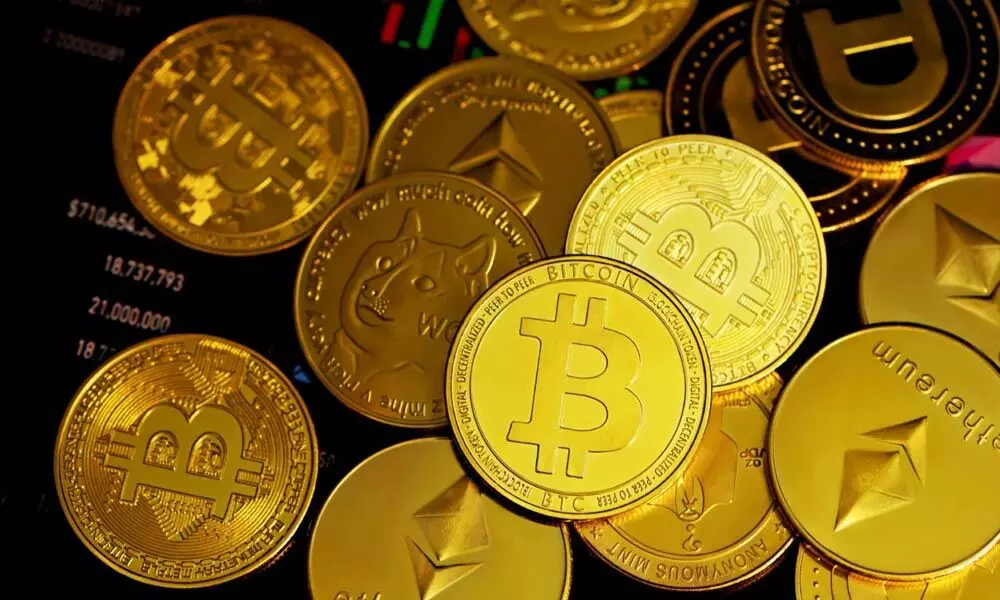To be or not to be? Uncertainty haunts crypto investors
Amidst conflicting statements from different quarters of the Indian govt the crypto investors are confuseda lot today
image for illustrative purpose

As if the prevailing confusion is not enough, Finance Minister Nirmala Sitharamana's recent statement has added fuel to the fire. On Feb 11, in reply to a question from Chhaya Verma, a Rajya Sabha member from Chhattisgarh, the Finance Minister clarified that if there is a gain from crypto transactions, the government has the right to tax them, but does not necessarily make them legal or illegal. "I will tax (cryptocurrency) because it is our sovereign right. Legitimate or illegitimate is a separate question," the minister said in the Parliament
For a long time, the issue that has been haunting the cryptocurrency traders and investors in the country is whether the cryptocurrency will become legitimate in India or not. Though the crypto story has taken several twists and turns during the last almost one decade, the crypto investors in India have been hopeful that one day the virtual currency will become legitimate in the country.
Of course, from a clarion call from the financial experts for an outright ban to the still evolving opinion of regulating it rather than imposing a blanket ban, the cryptocurrency has come a long way in India. Nevertheless, the cryptocurrency investors in the country have all these years been keeping their fingers crossed as the Indian government has been blowing hot and cold on the issue for quite some time now.
Eventually, the crypto investors heaved a big sigh of relief when Union Finance Minister Nirmala Sitharaman made the all important announcement, while presenting the Union Budget for the FY23 in Parliament which includes 30 per cent tax on income from transfer of virtual digital assets. The Finance Minister's announcement was expectedly welcomed by the crypto community as they saw it as a positive step as the experts opined that the decision to tax virtual digital assets will give the much-awaited clarity to the investors and traders of virtual digital assets like cryptocurrency on how their income would be taxed. They thought that the announcement to tax is a precursor to making the cryptocurrency legitimate in India.
But unfortunately, the confidence of the cryptocurrency investors was short-lived as there were conflicting statements from the top Finance Ministry officials on this issue. A day after it announced taxing digital assets transactions just the same as winnings from gambling, some senior officials said that the Indian government doesn't treat trading in crypto assets as illegal. "They are in a grey area. It's not illegal to buy and sell crypto," Union Finance Secretary T V Somanathan said adding, "We have now put in a taxation framework that treats crypto assets the same way we treat winnings from horse races, or from bets and other speculative transactions."
Then another top Finance Ministry official warned that the crypto trade or the digital assets transactions "do not ipso facto become legal or regular just because you have paid taxes on that." After the budget, the Central Board of Direct Taxes (CBDT) Chairman J B Mohapatra also jumped into the bandwagon clarifying that the Budget announcement of taxing 'virtual digital assets' or crypto currencies will help the Income-Tax department measure the "depth" of this trade in the country, know the investors and the nature of their investments and it does not "attach any legality" to these transactions. Mohapatra further added that "the taxation will also help us know if the investment is contaminated or illicit, if he/she is putting unaccounted income or it is a 'benami' of somebody else, then the consequences will follow."
To make matters worse, RBI Governor Shaktikanta Das has now reiterated the RBI's long-standing hostile stance towards the cryptocurrency, stating that "private cryptocurrencies are a big threat to India's financial and macroeconomic stability, along with RBI's ability to deal with the same."
As if the prevailing confusion is not enough, Finance Minister Nirmala Sitharamana's recent statement has added fuel to the fire. On Feb 11, in reply to a question from Chhaya Verma, a Rajya Sabha member from Chhattisgarh, the Finance Minister clarified that if there is a gain from crypto transactions, the government has the right to tax them, but does not necessarily make them legal or illegal. "I will tax (cryptocurrency) because it is our sovereign right. Legitimate or illegitimate is a separate question," the minister said in the Parliament.
More recently on February 14, RBI Deputy Governor T Rabi Sankar on record said that banning cryptocurrency is perhaps the most advisable choice open to India. Quite naturally, the crypto community in the country is confused a lot today. What should the crypto traders and investors do now as they are literally on the crossroads amidst the conflicting statements from different quarters of the Indian government. For them, there is no choice but to wait and watch the unfolding developments.
(The author is freelance journalist with varied experience in different fields)

